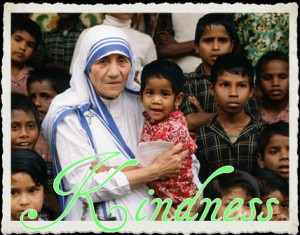Last week, while my husband and I were on the road, we saw a man walking dejectedly away from a car that was in the emergency lane. We pulled over and offered him a ride, which he gratefully accepted. It turned out that he had run out of gas, and we took him to his nearby home so that he could enlist the assistance of his wife.
As we were driving him home, he said something that made me feel sad. He said, “I didn’t expect anyone to stop.”
I think it is sad that we live in a world where we expect our fellow man to not help us. All too often, we see instances of people walking past other people who need help. Have we all become so busy and self-involved that we just don’t have time to look around us and lend a helping hand? Or is this a manifestation of the “crowd mentality” that makes us assume that if we don’t do something, someone else will?
What we did for that man was so small. It cost us about five minutes of time, but it probably made a huge difference in how that man’s day went.
The very next day, I went out for a long run. It was cold and windy, and it was snowing a little. Because of the extreme winter that we have had, several of the sidewalks are still packed with ice. About six kilometres in, I was running along a relatively clear stretch, so I was able to build up a decent pace. A man walking towards me indicated that I should slow down.
“There’s a big patch of ice up ahead,” he told me. “It’s hidden under the snow. Be careful.”
I thanked him and adjusted my pace accordingly. As I gingerly picked my way over the ice he had told me about, I pondered the fact that if he had not taken the time to tell me, I could have ended up with a serious injury. Those five seconds of kindness possibly changed the course not only of that day, but of the next few weeks.
It has been said that the beating of a butterfly’s wings can start a hurricane on the other side of the world. In the same way, just a few seconds of kindness can completely alter the course of the recipient’s day, week or month, and it can make the giver feel a whole lot better too. Several studies have shown that the single biggest predictor of happiness is the propensity to be kind.
My wish for all of you reading this is that you will take advantage of opportunities to be kind, and that you yourselves will be on the receiving end of kindness.
Tell me, what acts of kindness have you recently given or received?
This is an original post by Kirsten Doyle. Photo credit: Sephyr_Raon_Noxor. This picture has a creative commons attribution license.











I’m commenting in order to admit that I am NOT kind to strangers. I open doors, and give extra consideration to people around me who I see are struggling, and once I carried mail an unknown neighbor had dropped to her house instead of leaving it on the sidewalk, but for the most part I don’t help because I am afraid of people. I don’t ever pick up strangers, whether they are hitchhiking or obviously stranded. I don’t know who they are, and I don’t trust them. My husband helps EVERYONE. If an old lady stumbles in McDonald’s, he’s your guy. If you’re hitching rides, he’ll pick you up and learn your life story. Not me. If I don’t know you, I assume you have an axe and are in a pissy mood. That’s sad.
To an extent, I’m similar to you. If I’d been driving alone, there’s no way I would have stopped for that man, because you just never know. But opening doors and showing that consideration that you mention – that is still kindness, and it can still make an impact.
I agree with Jacquie regarding picking up people – except children in school uniform, I feel pretty safe with them. I hand out sweets or fruit (if I have any in my car) to people who beg for money – I never give them money because Non-Profit Organizations have told me it’s not helpful. However, I think that not picking up strangers doesn’t necessarily make you UNkind, it simply means that you show your kindness in other ways.
I completely agree, and I wouldn’t pick up anyone while driving alone. My point is that the smallest acts of kindness can have a big effect. It can be as simple as giving up your seat to an old lady on the bus.
I do always give money to people on the street, because it’s only by the grace of regular health care and a prescription for meds I can afford to buy that it’s not me on the street.
I offer to buy them coffee or a sandwich. Nine times out of ten they graciously accept.